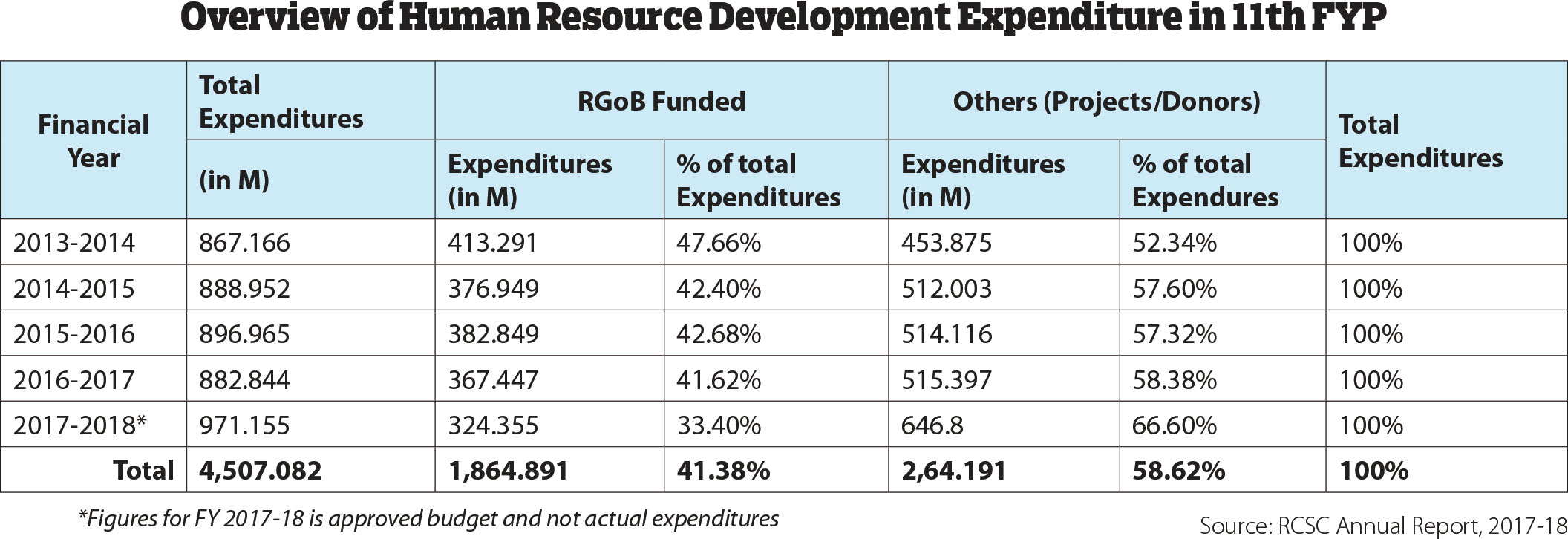The Royal Civil Service Commission (RCSC) plans to strengthen training needs assessment and appraisal of employees’ required skills during promotions through the development of a competency-based framework.
The initiative is aimed to enhance efficiency and professionalise the civil service and the commission has so far developed the framework for seven major occupational groups (MOGs).

The competency-based framework for engineering, forestry, immigration, nursing, teaching, and finance services were developed since the launch of the framework in August. The framework for the remaining MOGs will be developed phase wise, according to the commission.
The need for competency-based management practices in the civil service has come due to skills mismatch, awarding of impromptu training, and lack of systematic career advancement in civil service.
Human Resource officer with the Human Resource Development Division, Sangay Yeshi said the trainings provided were ad-hoc and randomly picked based on the availability of funds. “Looking for employees who had never gone for training was a process followed,” he said. “The process was not exhaustive and incomplete.”
The official said that long-term training has its own benefits but the chances of civil servants getting equipped with required skills were through periodic short-term trainings.
“One can opt for long-term training for not more than three times as per the regulation. The chances of skills gained becoming obsolete are high in long-term training,” the official said.
He added that experience alone was not enough for efficient and effective service delivery. “With experiences, we need to inject skills through training, more through short-term training,” he said.
RCSC has started to implement the framework in addition to existing human resource (HR) development programmes that provides various training through scholarships.
The commission through HR development programmes identifies areas and relevant scholarships annually based on the criticality and priority needs submitted by the agencies, according to the annual report 2017-18.
From 2016 to 2018, the commission through its government of India-project tied assistance implemented trainings worth Nu 166.656 million, 41.5 percent of the approved fund, in the dzongkhags to support policy decentralisation. More than 6,600 short-term trainings were implemented in the dzongkhags.
The local governments received four long-term trainings and 5, 357 short-term training slots from the funds allocated to central agencies in addition to the allocated funds to the LGs from 2016 to 2018.
The commission has implemented 539 slots in 19 different countries of which 326 were in-country programmes and 213 ex-country programmes through long-term training. The government funded 447 out of 539 long-term training
The framework is expected guide the utilisation of the 12th Plan human resource development budget and focus on providing short-term training to enhance competency, according to a press release from the commission.
“Although a significant amount of fund was allotted for human resource development every fiscal year, there were investments in some training, which the commission was not aware of,” said Sangay Yeshi.
In the last Plan, approximate Nu 4 billion was invested in the civil service. “We are not going to impose the competency-based framework but implement it in phases,” he said.
About 38.6 percent of the recurrent budget is being utilised to meet pay and allowances to maintain the civil service today. The framework according to the commission is expected to help maintain a small, compact and efficient civil service.
Lack of qualification, certification established in majority of professions, lack of professionalism and analysis, among others were some of the key challenges faced by the civil service according the commission’s annual report 2017-2018.
Nima

